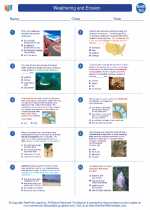Fungi
Fungi are a diverse group of organisms that are classified in their own kingdom, separate from plants, animals, and bacteria. They play important roles in ecosystems as decomposers, symbionts, and pathogens. Fungi have a unique way of obtaining nutrients, as they secrete enzymes to break down organic matter and then absorb the nutrients released.
Characteristics of Fungi
- Cell Structure: Fungi are eukaryotic organisms, meaning their cells have a nucleus and other membrane-bound organelles.
- Body Structure: Most fungi consist of thread-like filaments called hyphae, which may form a tangled mass called a mycelium.
- Reproduction: Fungi can reproduce both sexually and asexually. Asexual reproduction commonly occurs through the production of spores.
- Ecological Roles: Fungi play crucial roles in nutrient cycling and ecological interactions. They can form mutualistic relationships with plants, such as mycorrhizal associations, and some fungi are responsible for causing diseases in plants and animals.
Types of Fungi
There are several major groups of fungi, including:
- Zygomycetes: These fungi are typically found in soil and decaying plant material. They reproduce sexually through the formation of zygospores.
- Ascomycetes: Ascomycetes are commonly known as sac fungi and include yeasts, molds, and morels. They produce spores in sac-like structures called asci.
- Basidiomycetes: This group includes familiar fungi such as mushrooms, toadstools, and bracket fungi. They produce spores on club-shaped structures called basidia.
- Deuteromycetes: Sometimes referred to as "imperfect fungi," this group contains fungi with no known sexual reproductive stage.
Importance of Fungi
Fungi have significant ecological, economic, and medical importance. They are used in the production of food and beverages (e.g., bread, beer, and wine), as sources of antibiotics and other pharmaceuticals, and in bioremediation to clean up environmental pollutants.
Studying Fungi
To study fungi, it is important to understand their life cycle, ecological roles, and economic significance. Be sure to familiarize yourself with the major types of fungi, their characteristics, and the applications of fungi in various industries.
Key topics to focus on include:
- Fungal cell structure and function
- Fungal reproduction and life cycles
- Ecological roles of fungi
- Major groups of fungi and their characteristics
- Economic and medical importance of fungi
Additionally, hands-on activities such as observing fungal growth in a laboratory setting or conducting field studies to identify different types of fungi can enhance your understanding of this diverse and fascinating group of organisms.
[Fungi] Related Worksheets and Study Guides:
.◂Earth Science Worksheets and Study Guides High School. Weathering and Erosion

 Worksheet/Answer key
Worksheet/Answer key
 Worksheet/Answer key
Worksheet/Answer key
 Vocabulary/Answer key
Vocabulary/Answer key
 Vocabulary/Answer key
Vocabulary/Answer key
 Vocabulary/Answer key
Vocabulary/Answer key
